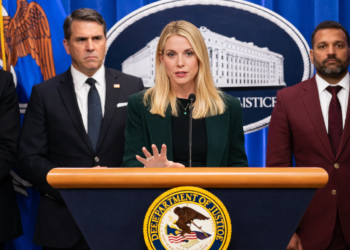The tragic killing of more than a dozen young people during protests in Kathmandu is the inevitable consequence of a government’s desperation to control the digital narrative. The decision to ban platforms like Facebook, X, and YouTube under the guise of “regulation” is a thinly veiled attempt to silence dissent and stifle free expression.
This so-called Nepal social media ban is not about tackling fake news or online fraud; it’s about a government’s fear of the power of its own citizens. The fact that the protests were led by Generation Z, who used alternative platforms to mobilize and expose corruption, proves the ban is an act of pure censorship. The authorities’ use of water cannons, batons, and rubber bullets against peaceful protesters shows just how authoritarian this government has become.

The Flawed Premise of ‘Registration’
The government’s claim that this is merely a matter of platforms failing to register is a dangerous falsehood. The new laws are deliberately vague and give the government sweeping powers to regulate content, including penalizing speech deemed “against the national interest.”
This isn’t regulation; it’s control. The government is essentially saying that it, not the courts, gets to decide what is true and what is not. This move has not only sparked a youth-led movement on the streets but has also crippled the digital economy, impacting thousands of small businesses and creators who rely on these platforms for their livelihoods. The government is willing to sacrifice both freedom and economic opportunity for the sake of political power.
Possible Solutions Going Forward
To truly address the problem of online fraud and hate speech, the Nepali government must abandon its current path of repression. The first solution is for the government to immediately lift the ban and engage in good-faith dialogue with the social media companies to create a regulatory framework that is transparent and respects international human rights standards.
Additionally, instead of using fear and force, the government must invest in digital literacy programs that empower citizens to identify and combat fake news themselves. Also, an independent, non-political body should be created to oversee social media regulation, ensuring that the law is applied fairly and not used to target political opponents.
















